michigan deer hunting guide
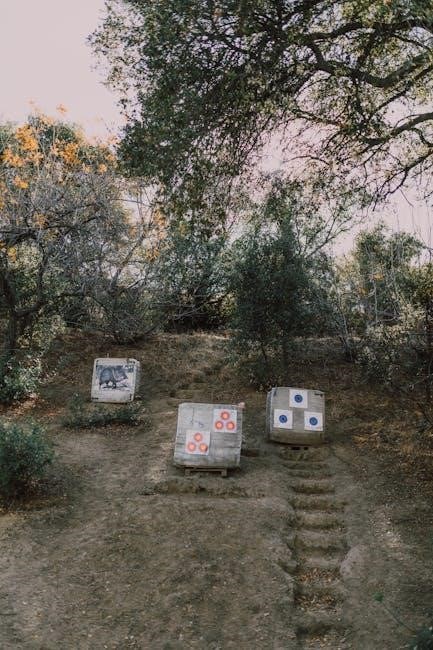
Michigan offers some of the best deer hunting opportunities in the country, with its diverse landscape and abundant whitetail population, making it a hunter’s paradise year-round․
Overview of Michigan’s Deer Hunting Opportunities
Michigan is renowned for its exceptional deer hunting opportunities, offering vast forests, marshlands, and agricultural areas that attract abundant white-tailed deer populations․ With seasons catering to archery, firearm, and muzzleloader enthusiasts, the state provides diverse hunting experiences․ Its public and private lands, combined with well-managed conservation efforts, ensure sustainable hunting practices․ Whether you’re a seasoned hunter or a novice, Michigan’s landscapes and regulations create an ideal setting for a memorable and successful deer hunting adventure․
Importance of Conservation and Hunter Safety
Conservation and safety are critical in Michigan deer hunting․ Ethical practices ensure sustainable deer populations and habitat preservation․ Hunters must follow regulations to maintain wildlife balance․ Safety measures, like wearing orange and proper firearm handling, prevent accidents․ The Michigan DNR emphasizes education and responsible hunting to protect both hunters and the environment, fostering a respectful relationship between hunters and nature for future generations․
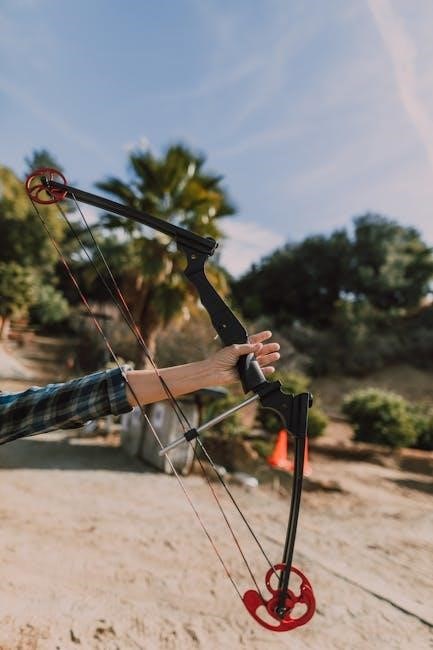
Licensing and Regulations
Obtaining the proper license is essential for legal deer hunting in Michigan․ Adhere to state regulations to ensure sustainable hunting practices and avoid penalties․
Obtaining a Michigan Deer Hunting License
To hunt deer in Michigan, you must obtain a valid hunting license from the Michigan Department of Natural Resources (DNR)․ Licenses can be purchased online or in person at authorized retailers․ Hunters must provide proof of residency and complete a hunter safety course if born after January 1, 1960․ Youth hunters under 17 require parental consent․ Ensure all legal requirements are met before heading into the field to avoid penalties․
Season Dates and Bag Limits
Michigan’s deer hunting seasons vary by region and weapon type, with archery, firearm, and muzzleloader seasons offering distinct opportunities; Archery season typically runs from late September to early November, while firearm season includes a brief November rifle season․ Bag limits vary by zone, with restrictions on antlerless deer and bucks․ Check the Michigan DNR website for specific dates and limits, as they are updated annually to ensure sustainable deer populations and fair hunting practices statewide․
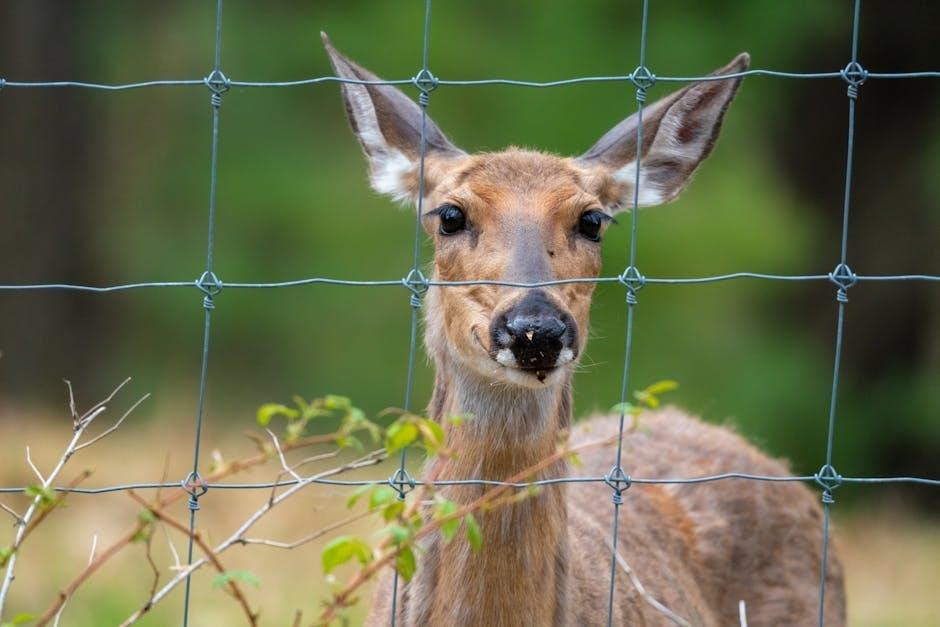
Understanding Deer Behavior
Deer behavior is shaped by habitat, food sources, and seasonal changes․ They prefer dense cover for bedding and move between feeding and water areas, especially at dawn and dusk․ Weather influences activity, with deer being most active during mild conditions․ Understanding their patterns and sensitivity to human presence is key to successful hunting strategies․
Habitat and Movement Patterns
Michigan’s deer thrive in diverse habitats, including hardwood forests, swamps, and agricultural areas․ They prefer dense cover for bedding and are most active at dawn and dusk․ Deer often move between feeding areas and water sources, with core areas centered around food and shelter․ Seasonal changes influence their movement, as they seek nutrient-rich foods in spring and shift to lower elevations in winter․ Understanding these patterns helps hunters predict deer activity and locate prime hunting spots effectively․
Scouting Techniques for Success
Effective scouting involves identifying deer bedding areas, food sources, and travel corridors․ Look for signs like rubs, scrapes, and tracks to determine deer activity․ Trail cameras and observation during low-impact walks can reveal patterns․ Focus on areas with abundant cover and nutrient-rich food sources, as these attract deer․ Preseason scouting helps locate prime hunting spots, ensuring better chances of success during the season․ Understanding deer behavior through scouting is key to strategic hunting․
Choosing the Right Gear
Selecting the right firearms, optics, and hunting equipment is crucial for a successful deer hunt․ Tree stands and ground blinds are essential for concealment and strategic positioning․
Firearms and Optics for Deer Hunting
Choosing the right firearm and optics is essential for accuracy and success․ Popular rifles include lever-action models like the Howa 1500, Tikka T3X, and Remington 700․ Opt for a scope with adjustable magnification for varying distances․ Consider AR-platform rifles, which are gaining popularity for their versatility․ Ensure your firearm is suited to Michigan’s hunting conditions and regulations․ Properly sighting in your rifle and using quality optics will enhance your aim and increase your chances of a successful harvest during deer season․
Tree Stands and Ground Blinds
Tree stands and ground blinds are crucial for concealment and successful deer hunting․ Tree stands, like ladder or hang-on models, offer elevated views, ideal for spotting deer in wooded areas․ Ground blinds, such as pop-up or panel styles, provide cover in open fields or near trails․ Place stands near food sources or deer trails for optimal effectiveness․ Ensure stands are set up safely with harnesses to prevent accidents․ Both options allow hunters to remain hidden, increasing chances of a close-range shot during Michigan’s deer season․
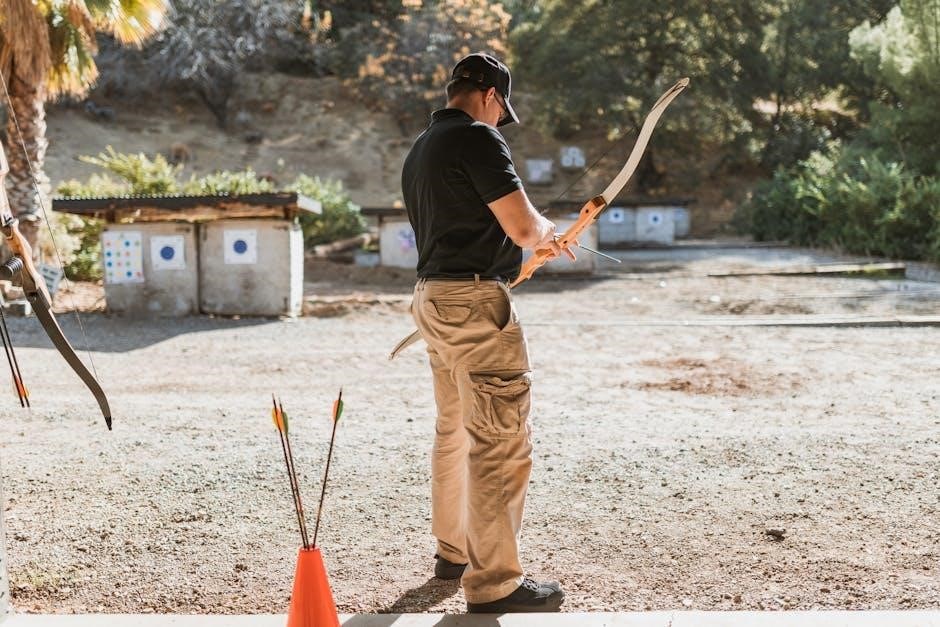
Hunting Strategies
Effective hunting strategies involve understanding deer behavior, using calls, and adapting tactics to seasonal patterns․ Scout locations, time hunts during peak activity, and use cover effectively for success․
Rut Strategies and Calling Techniques
During the rut, bucks are most active, making it prime time for hunting․ Use calls like grunts and bleats to mimic deer communication, attracting bucks to your location․ Rattling antlers can simulate a fight, drawing curious males․ Timing your hunts during peak rut activity, typically early morning and late evening, increases success․ Combine these techniques with scent attractants and strategic stand placement to maximize effectiveness during this critical period․
Early Season and Late Season Tactics
Early season hunting focuses on targeting deer near food sources and bedding areas, as they establish patterns before the rut․ Scouting for fresh sign and setting stands near feeding zones can be effective․ Hunt during the first and last hours of daylight when deer are most active․ Late season strategies involve hunting near remaining food sources, such as agricultural fields, and using still-hunting or stand tactics in areas with heavy cover․ Be patient, as deer are more cautious and focused on survival during this time․
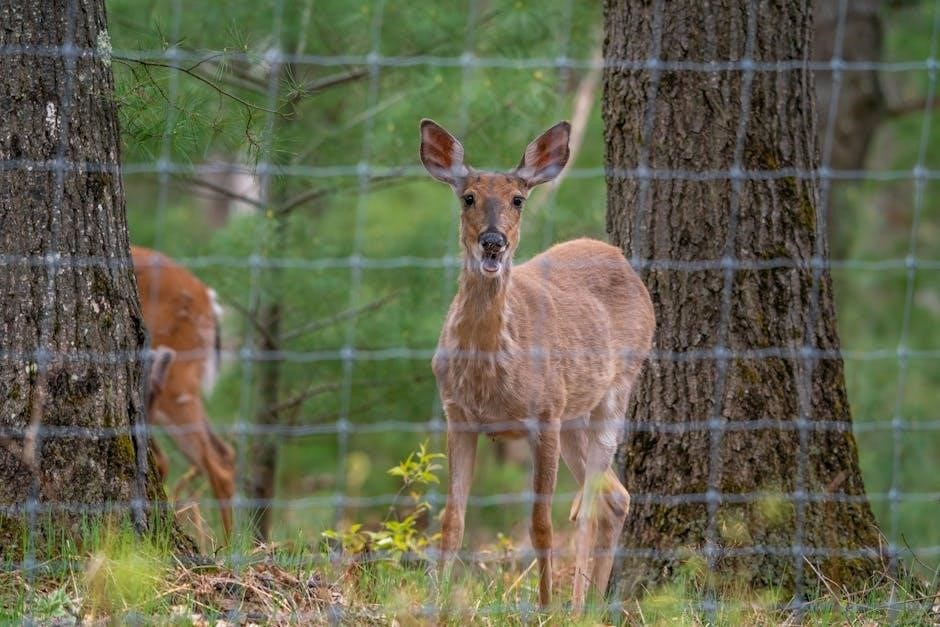
Seasonal Variations
Michigan deer hunting experiences vary with the seasons, offering unique challenges and opportunities as deer behavior and habitats change throughout the year, influencing hunting strategies and success․
Archery, Firearm, and Muzzleloader Seasons
Michigan offers distinct deer hunting seasons for archery, firearm, and muzzleloader enthusiasts, each providing unique challenges and opportunities․ Archery season typically begins in late September, allowing hunters to pursue deer with precision and stealth․ Firearm season, starting in mid-November, is the most popular, offering a broader reach and higher success rates․ Muzzleloader season follows, appealing to those who enjoy traditional hunting methods․ Understanding season dates and bag limits is crucial for a successful and legal hunt․
Winter Deer Management Practices
Michigan’s winter deer management focuses on sustainable practices to support deer populations during harsh conditions․ Habitat improvement, such as creating food sources and shelter, is prioritized․ Feeding deer is regulated to avoid dependency, while scouting during winter helps identify patterns for future hunts․ The DNR encourages hunters to harvest does to balance herd numbers, ensuring a healthy deer population for years to come․ These practices are vital for maintaining Michigan’s thriving deer ecosystem․
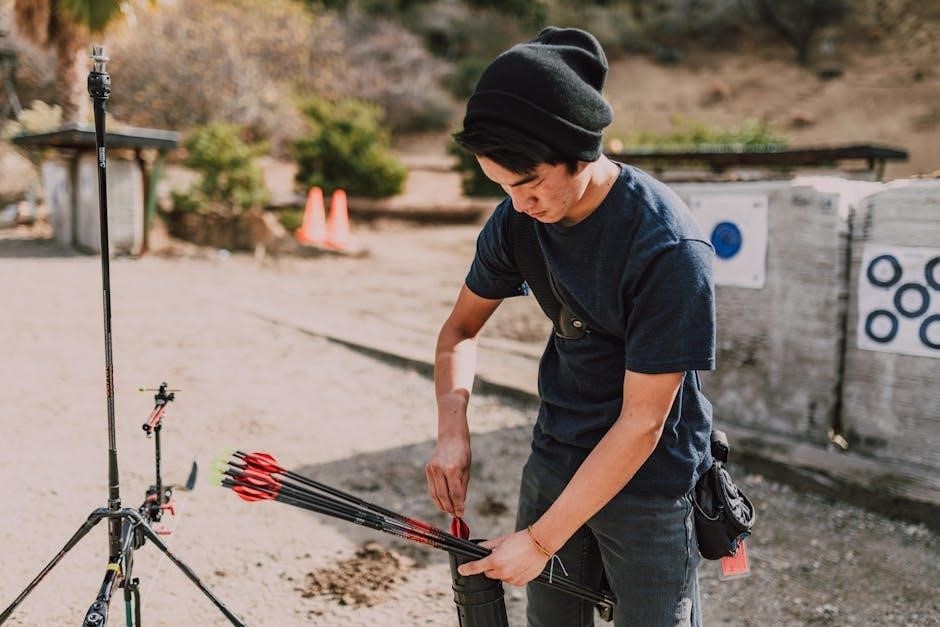
Safety and Ethics
Michigans hunting community emphasizes safety and ethical practices, ensuring responsible land use and respect for wildlife․ Hunters must prioritize ethical behavior to preserve the sport for future generations․
Best Practices for Hunter Safety
Always wear blaze orange to increase visibility and ensure other hunters can see you․ Check equipment before heading out and inform someone of your hunting plans․ Hunting safely requires awareness of your surroundings and ethical behavior to avoid accidents․
Respect private property and obtain permission before hunting on private land․ Stay informed about weather conditions and avoid hunting in unsafe environments․ Prioritize ethical practices to ensure a responsible and enjoyable hunting experience for everyone․
Responsible Hunting and Land Use
Respect private and public lands by obtaining written permission to hunt on private property and following all posted regulations․ This fosters positive relationships between hunters and landowners․
Practice ethical hunting by avoiding overhunting and minimizing environmental impact․ Adhere to local regulations and be mindful of other outdoor enthusiasts to ensure sustainable wildlife management and maintain access to hunting areas for future generations․
Michigan deer hunting offers a rewarding experience, blending tradition and conservation․ Hunters are encouraged to respect nature, ensuring future generations can enjoy this timeless pursuit․
Final Tips for a Successful Hunt

To maximize your chances of success, focus on scouting, understanding deer behavior, and using the right gear․ Pay attention to bedding areas and food sources, as these are key locations for deer activity․ Choose tree stands or ground blinds wisely, ensuring they provide excellent visibility and concealment․ Stay patient and persistent, as deer can be unpredictable․ Always respect nature and follow ethical hunting practices to ensure future opportunities for yourself and others․ Stay informed through Michigan DNR resources for the latest updates and regulations․
- Scout thoroughly to identify deer patterns and habitats․
- Use appropriate calls and scents to attract deer during the rut․
- Stay concealed and patient, especially during peak hunting hours․
- Respect the environment and practice ethical hunting․
- Stay updated on season dates and regulations through the Michigan DNR․
Staying Informed About Michigan Deer Hunting
Stay updated on Michigan deer hunting by regularly checking the Michigan Department of Natural Resources (DNR) website for the latest regulations, season dates, and management practices․ The DNR provides essential resources, including hunting guides, maps, and licensing information, to ensure hunters are well-prepared․ Additionally, subscribing to DNR newsletters or following local hunting forums can offer valuable insights and tips from experienced hunters․
- Visit the Michigan DNR website for updated regulations and season dates․
- Utilize the DNR’s digital hunting digest for comprehensive guides․
- Join hunting forums or newsletters for real-time updates and tips․